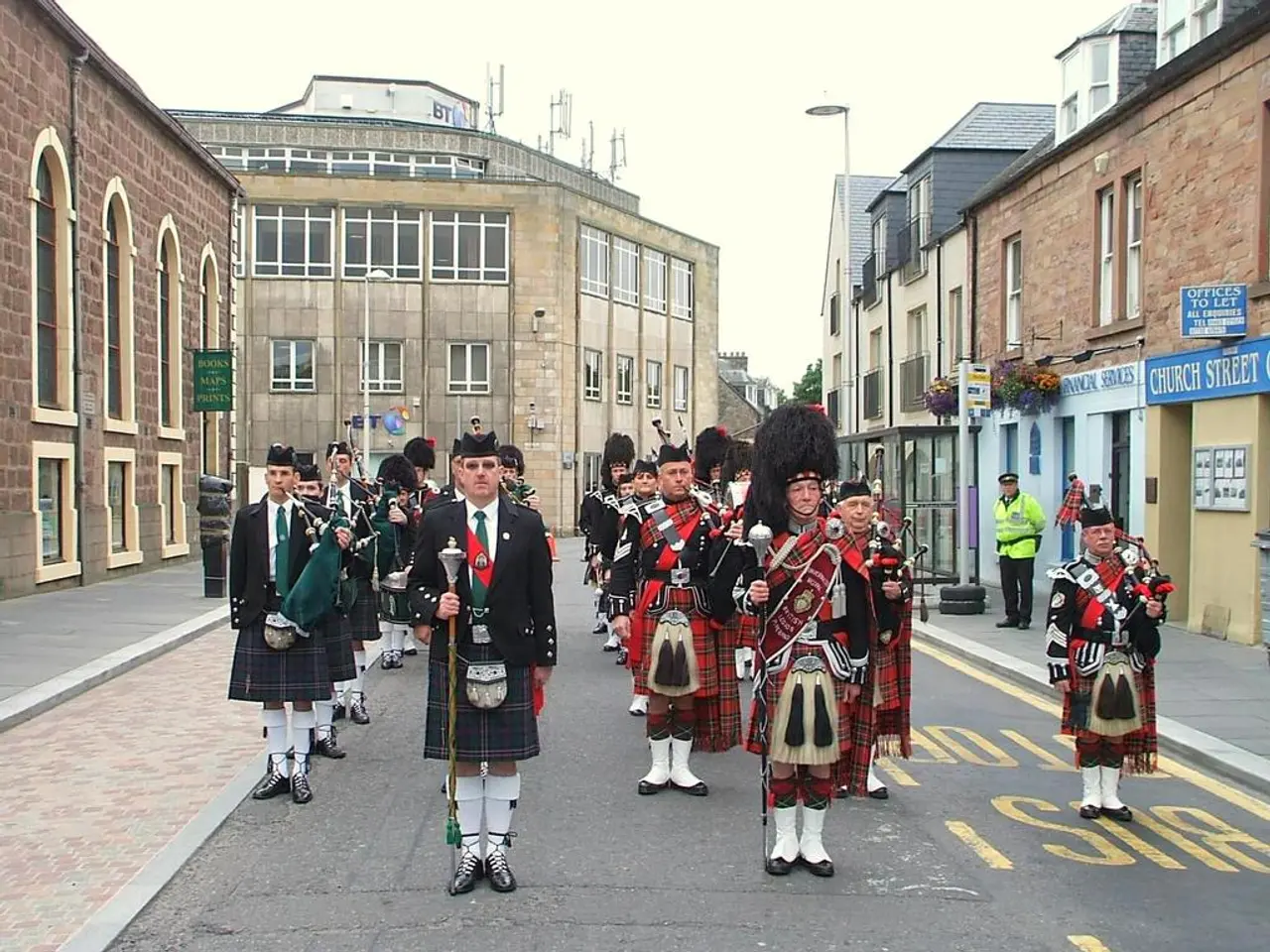Work Strategies Suggested by Marcel Kreutz: 'Equitable Employment Approaches'
In a recent event, the SPD and Green mayoral candidate, Marcel Kreutz, discussed "social participation through work" in Bergisch Gladbach. The event, titled "Creating opportunities: Paths to work for all," attracted many interested parties and the event room was fully occupied.
As mayor, Marcel Kreutz aims to co-responsibly promote work for all as a municipal goal. He published an extensive position paper on the topic, stating that work is more than income, it is participation, dignity, and future.
To achieve this, Marcel Kreutz proposes several initiatives. One of them is the establishment of a municipal "Alliance for Work and Participation" with various stakeholders, including companies, social institutions, and engaged citizens. This alliance aims to better network existing offers and create new ways for disadvantaged groups to access employment.
Another proposal is the creation of a municipal employment fund to co-finance community-oriented jobs for particularly disadvantaged groups. This fund could help employ long-term unemployed individuals in municipal areas and support a special training program for young people without a degree or with special needs.
Marcel Kreutz also suggests reducing access barriers by supporting language acquisition, mobility, childcare, and digital competencies. He acknowledges the city's responsibility in addressing the social impacts of unemployment and emphasizes that a solidarity-based Bergisch Gladbach is needed that doesn't overlook anyone.
The city administration should set a good example, according to Kreutz. He proposes that the city itself becomes an employer, with a focus on employing long-term unemployed in the municipal sector.
However, there is no publicly available detailed information specifically outlining these proposals and initiatives. It's worth noting that the complexity of living situations of many individuals, as described by Beate Simons and Julia Schramm from the social institution Die Kette e.V., underscores the need for such comprehensive measures.
To support cases with particular support needs, Marcel Kreutz suggests the establishment of a municipal specialist team "Transitions and Participation." This team would help navigate the challenges faced by individuals in achieving sustainable integration into the labor market.
In addition, Marcel Kreutz advocates for cooperating with companies to promote low-threshold entry models. This could provide opportunities for those who may face structural disadvantages due to their migration background or lack of formal qualifications.
In conclusion, Marcel Kreutz's job creation proposals for Bergisch Gladbach aim to create a more inclusive and supportive environment for all, ensuring no one is overlooked or given up on. His vision for a solidarity-based Bergisch Gladbach is a promising step towards a more cohesive and prosperous city.
- Marcel Kreutz, the SPD and Green mayoral candidate, has presented policies focusing on education-and-self-development, career-development, and social participation through work, as outlined in the event "Creating opportunities: Paths to work for all."
- To execute these policies, Kreutz proposes initiatives such as establishing a municipal "Alliance for Work and Participation," creating a municipal employment fund for a special training program and community-oriented jobs, and reducing access barriers by supporting language acquisition, mobility, childcare, and digital competencies.
- To address complex cases with particular support needs, Kreutz suggests establishing a municipal specialist team "Transitions and Participation" and promoting partnerships with companies to create low-threshold entry models, fostering inclusivity and overcoming structural disadvantages.




